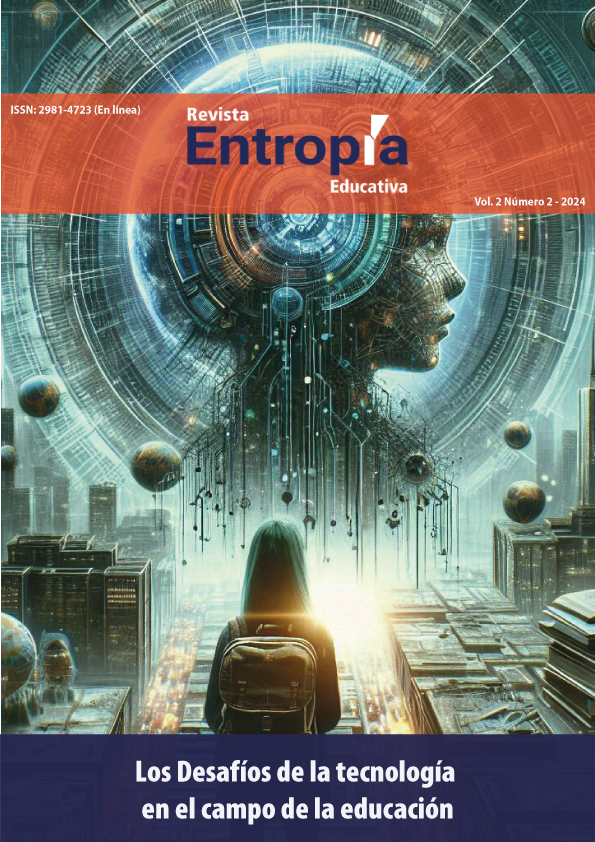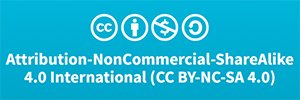
ISSN: 2981-4723 (En línea)

Monográfico
Pensamiento Crítico en la Era Digital: Desafíos y Oportunidades para una Epistemología Digital picture_as_pdf
Critical Thinking in the Digital Age: Challenges and Opportunities for a Digital Epistemology
Rómulo Andrés Gallego Torres
director@entropiaeducativa.com
https://orcid.org/0000-0001-5074-6781


Resumen
Este artículo examina los desafíos y oportunidades para desarrollar el pensamiento crítico en la era digital, con un enfoque en la necesidad de una "epistemología digital" nueva. Revisa la literatura actual sobre el estado deficiente de las habilidades de pensamiento crítico y los retos particulares de los entornos digitales. Delinea un marco conceptual para una epistemología digital que priorice el pensamiento crítico integrado con alfabetización digital e informacional. Destaca estrategias pedagógicas efectivas como instrucción directa, aprendizaje basado en problemas, verificación de hechos, reflexión metacognitiva y comunidades de indagación digital. Concluye con un llamado para reformas sistémicas y mayor investigación para cerrar la brecha entre la visión de un pensamiento crítico robusto y la realidad educativa.
Palabras clave: pensamiento crítico, epistemología digital, tecnología educativa, pedagogía, alfabetización digital
Abstract
This article examines the challenges and opportunities for developing critical thinking in the digital era, with a focus on the need for a new "digital epistemology." It reviews the current literature on the deficient state of critical thinking skills and the particular challenges posed by digital environments. It outlines a conceptual framework for a digital epistemology that prioritizes critical thinking integrated with digital and information literacy. It highlights effective pedagogical strategies such as direct instruction, problem-based learning, fact-checking, metacognitive reflection, and digital inquiry communities. It concludes with a call for systemic reforms and further research to bridge the gap between the vision of robust critical thinking and the reality of education.
keyWords : critical thinking, digital epistemology, educational technology, pedagogy, digital literacy
-
Referencias
- Abrami, P. C., Bernard, R. M., Borokhovski, E., Waddington, D. I., Wade, C. A., & Persson, T. (2015). Strategies for teaching students to think critically: A meta-analysis. Review of Educational Research, 85(2), 275-314.
- Abrami, P., Bernard, R., Borokhovski, E., Wade, A., Surkes, M., Tamim, R., & Zhang, D. (2008). Instructional interventions affecting critical thinking skills and dispositions: A stage 1 meta-analysis. Review of Educational Research, 78(4), 1102-1134.
- Akınoğlu, O., & Tandoğan, R. O. (2007). The effects of problem-based active learning in science education on students’ academic achievement, attitude and concept learning. Eurasia Journal of Mathematics, Science & Technology Education, 3(1), 71-81.
- Arum, R., & Roksa, J. (2011). Academically adrift: Limited learning on college campuses. University of Chicago Press.
- Breakstone, J., Smith, M., Wineburg, S.S. (2019). Students’ Civic Reasoning: Can Mobile Technology Build Skills for Democratic Discourse? Stanford History Education Group.
- Carr, N. G. (2008). Is Google making us stupid?. The Atlantic, 302(1), 56-63.
- Carr, N. (2011). The shallows: What the Internet is doing to our brains. WW Norton & Company.
- Ciampaglia, G. L., Mantzarlis, A., Maus, G., & Menczer, F. (2018). Research challenges of digital misinformation: Toward a trustworthy web. AI Magazine, 39(1), 65-74.
- Gallup (2016). Critical higher education discoveries. Gallup-Strada Education Consumer Pulse Survey Report. Retrieved from: https://www.gallup.com/services/194631/critical-discoveries-higher-education-2016.aspx
- Gonzalez, J. (2021). How prepared are teachers to implement critical thinking strategies?. Education Week, 41(13), 4.
- García, E., Rodríguez, C., González, L., Fuentes, A., & Sánchez, S. (2022). Developing critical thinking through ethical and socioscientific issues in science teacher training. Thinking Skills and Creativity, 42, 100992.
- Guzman, A. L., & Nussbaum, M. (2009). Teaching competencies for technology integration in the classroom. Journal of Computer Assisted Learning, 25(5), 453-469.
- Huang, S., Chen, G., Feng, C., Shen, M., & Liu, X. (2022). Knowing the infinite: Information processing in the age of Internet. Consciousness and cognition, 98, 103284.
- Iyengar, S. S., & Lepper, M. R. (2000). When choice is demotivating: Can one desire too much of a good thing?. Journal of personality and social psychology, 79(6), 995.
- Jamieson, K. H., & Cappella, J. N. (2010). Echo chamber: Rush Limbaugh and the conservative media establishment. Oxford University Press.
- Kahne, J., & Bowyer, B. (2017). Educating for democracy in a partisan age: Confronting the challenges of motivated reasoning and misinformation. American Educational Research Journal, 54(1), 3-34.
- Kim, M. C., Hannafin, M. J., & Kim, H. (2019). Entanglement of critical thinking and digital literacy: toward digital critical literacy. Instructional Science, 47(2), 147-167.
- Kuhn, D. (2005). Education for thinking. Harvard University Press.
- Lipman, M. (2003). Thinking in education. Cambridge University Press.
- Liu, O. L., Frankel, L., & Roohr, K. C. (2014). Assessing critical thinking in higher education: Current state and directions for next-generation assessment. ETS Research Report Series, 2014(1), 1-23.
- Lu, J., & Churchill, D. (2014). Using social media to foster online learning communities. Interactive Learning Environments, 22(4), 545-557.
- Phillips, M. (2014). Re-contextualizing TPACK: Exploring teachers’ (non-) use of digital environments to support critical thinking in secondary education (Doctoral dissertation, Free University of Brussels).
- Scriven, M., & Paul, R. (2007). Defining critical thinking. The Critical Thinking Community. Retrieved from http://www. criticalthinking. org/pages/defining-critical-thinking/766.
- Shao, C., Ciampaglia, G. L., Varol, O., Yang, K. C., Flammini, A., & Menczer, F. (2018). The spread of low-credibility content by social bots. Nature communications, 9(1), 1-9.
- Siegel, H. (2017). Education's epistemology: The argument for a reasoned belief approach. Oxford University Press.
- Snyder, L. G., & Snyder, M. J. (2008). Teaching critical thinking and problem solving skills. Delta Pi Epsilon Journal, 50(2), 90-99.
- Sykes, E., & Wills, J. (2019). An assessment for learning approach for the teaching of critical analysis skills through gaming in a university foundations program. Journal of University Teaching & Learning Practice, 16(4), 1-19.
- Vuorikari, R., Punie, Y., Carretero Gomez S., & Van den Brande, G. (2016). DigComp 2.0: The digital competence framework for citizens. Update phase 1: The conceptual reference model. Luxembourg Publication Office of the European Union.
- Vosoughi, S., Roy, D., & Aral, S. (2018). The spread of true and false news online. Science, 359(6380), 1146-1151.
- Warwick, P., Vrikki, M., Vermunt, J. D., Mercer, N., & Van Halem, N. (2020). Connecting teacher identity formation to patterns in teacher learning related to differentiated instruction. Teaching and teacher education, 91, 103038.
- Willingham, D. (2010). Have technology and multitasking rewired how students learn? American Educator, 23-28.
- Zuiderveen Borgesius, F., Trilling, D., Möller, J., Bodó, B., De Vreese, C. H., & Helberger, N. (2016). Should we worry about filter bubbles?. Internet policy review, 5(1).

Autor (es)
Rómulo Andrés Gallego Torres
Doctor en Educación: Escuela, Lengua y Sociedad de la Universidad del País Vasco, investigador y conferencista especializado en temas como el e-learning, la comunicación digital, los nuevos modelos educativos, el marketing digital, las redes sociales y el digital storytelling. Experto en el desarrollo de soluciones digitales para el e-learning, con amplia experiencia en el campo del desarrollo web para Pymes, empresas públicas y universidades. Conocedor de la usabilidad, accesibilidad, comunicación digital y tecnologías web. Docente universitario en varias instituciones, incluyendo Universidad Distrital Francisco José de Caldas, Universidad Colegio Mayor de Cundinamarca, Uniminuto, Universidad Cooperativa de Colombia, Universidad de la Sabana, Fundación Universitaria Los Libertadores y Universidad Sergio Arboleda. Fundador de Comunicación Visual, empresa dedicada al desarrollo de soluciones digitales en desarrollo web y marketing digital, y a las TIC en educación. Apasionado lector de temas relacionados con las TIC, la educación y las ciencias sociales, y convencido de que el acceso democrático a la educación se logra mediante el uso adecuado de las nuevas tecnologías.
This work is licensed under Attribution-NonCommercial-ShareAlike 4.0 International
Buscar


Número: Vol. 3 Núm. 4 (2024)
Cita en APA 7
Gallego Torres, R.A (2023). Pensamiento Crítico en la Era Digital: Desafíos y Oportunidades para una Epistemología Digital. Revista Entropía Educativa. Vol. 1 No. 1 p.31-42
Gramática, enseñanza y (r)evoluciones
Jhon Jairo Tafur Rincón
picture_as_pdf
1699 Lecturas
Pensamiento Crítico en la Era Digital: Desafíos
y Oportunidades para una Epistemología
DigitalRómulo Andrés Gallego Torres
picture_as_pdf
1291 Lecturas
Reflexiones sobre la enseñanza del proceso salud-enfermedadPaola Fernanda Rosalez - Agustín Adúriz-Bravo - Andrea Revel Chion
picture_as_pdf
726 Lecturas
Educación en derechos humanos con enfoque de género, una propuesta educativa para la construcción de una cultura para la paz en Colombia Felipe Andrés Bernal Sandoval
picture_as_pdf
531 Lecturas

